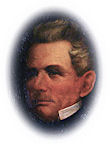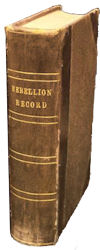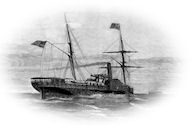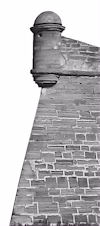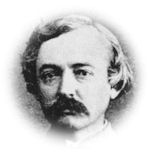U. S. ENGINEER OFFICE,
Savannah, January 7, 1861.
GENERAL : I have to report that on the 3d instant, being at Fort Clinch, I received a telegram from my clerk informing me that troops of the State of Georgia were moving to occupy Fort Pulaski, by order of the governor. I replied by telegraph, directing Mr. Hirsch to inform the commandant of Engineers of the fact. I took the first opportunity to reach Savannah on the 6th, and arrived last night. This morning I proceeded to Fort Pulaski, which I found occupied by Georgia troops, commanded by Colonel Lawton. I was received with great civility, and informed by him that he held possession of all the Government property for the present, by order of the governor of the State, and intended to preserve it from loss or damage. He requested a return of the public property, both Ordnance and Engineer, which I have given as existing January 1. Those returns for the fourth quarter, 1860, will be forwarded with my quarterly papers, signed as usual up to the commencement of the present quarter. I can sign no more, however, for I cannot be responsible for property of the charge of which I have been forcibly deprived. I have directed Ordnance Sergeant Walker to report at Oglethorpe Barracks until further orders. The fort keeper I have discharged.
On Saturday, 3d instant, the regular mail-boat from Fernandina to this place, by which I intended to travel, was taken off the line by the governor of Florida and ordered, as I was informed, to Saint Augustine, with a force to seize the ordnance mounted in the water battery of Fort Marion for the purpose of arming Fort Clinch.
It is, perhaps, unnecessary for me to say to the Department that in the present condition of Fort Clinch the idea of arming it either for offense or defense is simply absurd. My presence, however, is necessary there, for I know that I have sufficient influence in the community to prevent anything like spoliation or plunder of the public property by lawless individuals. I shall, therefore, return there on Wednesday, the 9th instant.
Previous to leaving that post, I received assurances from the principal citizens to the effect. that they would promptly put down anything like an attempt on the part of unauthorized mobs, to take a dime’s worth of the large amount of valuable material and property at the fort. They manifest a desire that the work shall continue without molestation, and this I believe to be the desire also of the members of the State Convention. I have a force of sixty men at work pushing the masonry as rapidly as possible. On the authority of Department letter of 9th ultimo, I have continued the work with the funds in my bands. The payments for December, which will be immediately made, will exhaust all funds in my hands belonging to Fort Clinch, and perhaps exceed a little. have, as will be seen by the monthly statement, enough of other funds to continue for the present; but unless a portion at least of my last estimates is sent to me, I shall be compelled to close my operations. I respectfully request instructions. It is necessary to inform you that the telegraph is in the hands of the State authorities, and no message of a military or political character is allowed to be sent or delivered except by permission of the governor. The telegram of Mr. Hirsch to Colonel De hussy was refused until countersigned by Governor Brown.
As to the Savannah River improvement, no interference with the property belonging to the appropriation has been attempted, nor is any at present anticipated. I have, however, directed the discharge of all employes except a watchman. Fort Jackson remains as heretofore.
The mail between Charleston and Fernandina having been discontinued, I request that communications be addressed to me via Savannah.
……….Very respectfully,
WM. H. C. WHITING,
Captain of Engineers.
General J. G. TOTTEN, Chief Engineer, Washington.
